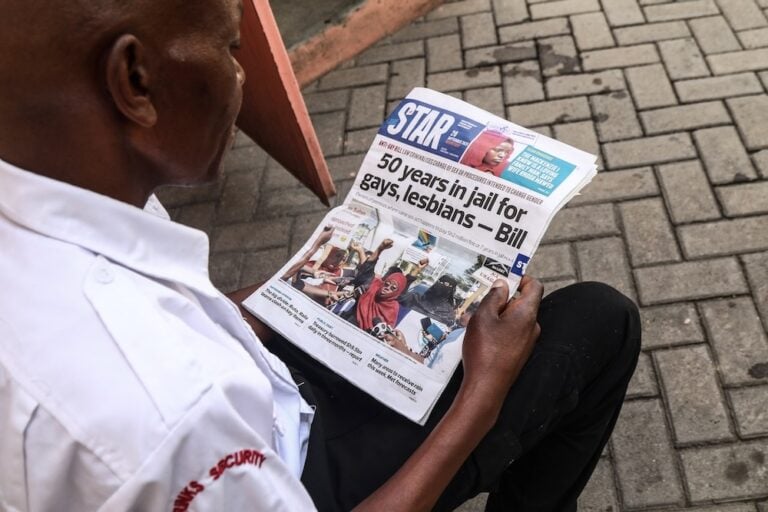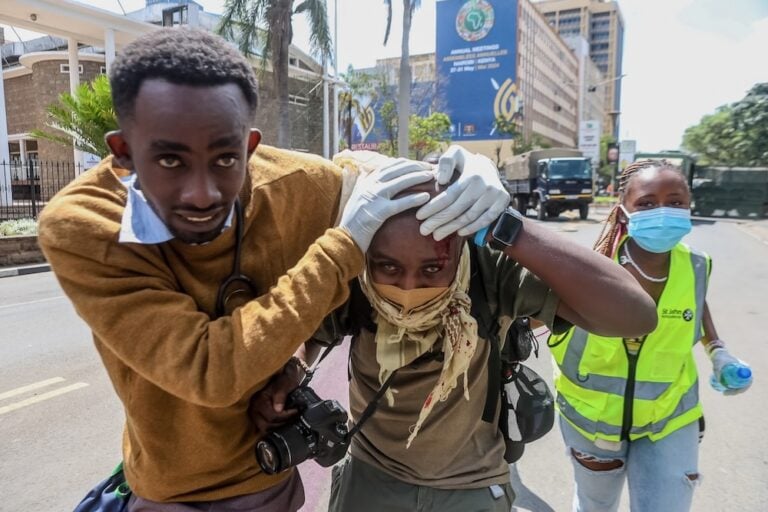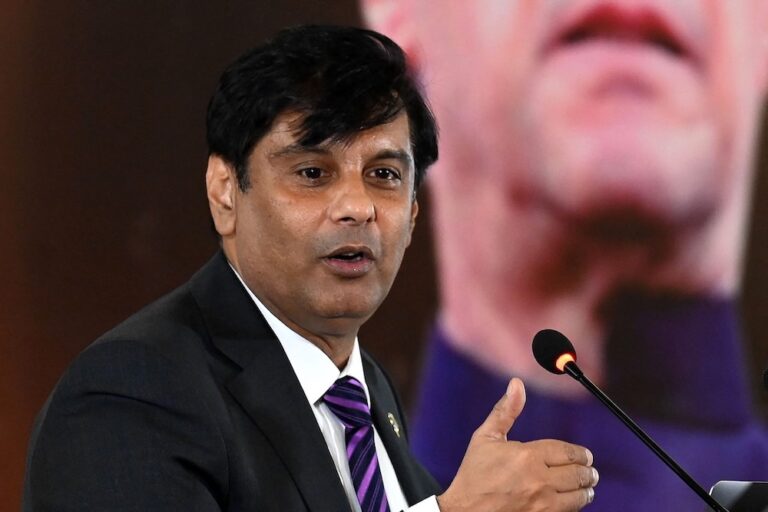(NDIMA/IFEX) – On 22 August 2001, the High Court in Nairobi barred the Nation Media Group from publishing reports on President Moi’s son Jonathan Toroitich arising from the sittings of a parliamentary watchdog committee. The ruling came only one day after another judge prevented the “Daily Nation”, a publication of the media group, from publishing […]
(NDIMA/IFEX) – On 22 August 2001, the High Court in Nairobi barred the Nation Media Group from publishing reports on President Moi’s son Jonathan Toroitich arising from the sittings of a parliamentary watchdog committee.
The ruling came only one day after another judge prevented the “Daily Nation”, a publication of the media group, from publishing extracts from the memoirs of former US ambassador to Kenya Smith Hempstone (see IFEX alert of 21 August 2001).
Kenyan High Court Judge Kasanga Mulwa ordered the group not to publish stories from the Public Investiments Committee (PIC) until its inquiry reports are tabled before parliament. These would include any proceedings involving Toroitich, which he had been cited in his suit.
The PIC’s function is to check the expenditures of public corporations. The suit arises from an article published by the “Nation” on the award of a contract which was investigated by the PIC.
Justice Mulwa said the newspaper, which was not represented in court, had published deliberations of the PIC before they were laid before the House.
“This is an ominous violation of the Parliamentary proceedings which is privileged, and I have no hesitation in holding that this is a case in which the respondent has violated laws in its somewhat unbridled pursuit of information,” said Justice Mulwa.
The judge said the “Nation”‘s report, which Toroitich had complained about, had appeared before the PIC report was tabled in parliament, which was a contravention of Standing Order 161 and a breach of parliamentary procedure.
“It has got to be abundantly clear, both to the respondent and all other media bodies, that publication of privileged Parliamentary proceedings, being a breach of Parliamentary Standing Orders is a serious travesty of justice and this court,” the judge said.
Toroitich had asked for an injuction restraining the Nation Media Group from further publishing defamatory material agaist him.
On Tuesday 21 August, Toroitich’s lawyer, Violet Barasa, told Justice Mulwa that the report carried in the “Nation” newspapers inplied her client was guilty. She said the newspaper had published the report with malice and that Toroitich would suffer an irreparable loss if the Nation Media Group was not restrained from publishing further defamatory matters.
The lawyer told the court that in spite of several demands, the newspaper had declined to withdraw the reports and offer an apology.
Later, Toroitich’s lawyer sent a letter to the “Nation” demanding retraction of a report published on Monday 20 August linking him to a group of companies said to have benefited from a land allocation complained about at the Common Market for East and Southern Africa (COMESA) Court of Justice.
The letter from Violet Barasa and Company Advocates also demanded an immediate apology.


